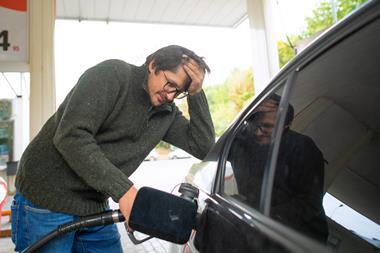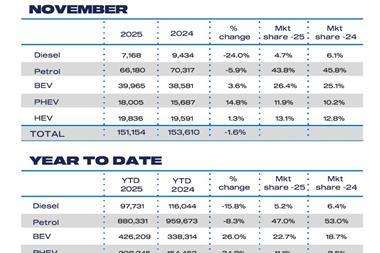The UK’s new car market grew by 5.3% in March, making it the biggest ever month since the six monthly plate change began in 1999, according to figures published by the Society of Motor Manufacturers and Traders (SMMT).
A total of 518,707 new cars were registered in March, which is only the third time the market has surpassed half a million units in a single month. The month rounded off a record quarter, in which more than 770,000 new cars were registered – a 5.1% increase over the first quarter in 2015.
Demand for alternative fuel vehicles showed a notable increase of 21.5% in the month, as consumers continued to favour lower emission vehicles with lower running costs. Registrations of diesel and petrol cars also increased, with respective uplifts of 4.8% and 4.7%.
Growth was seen across all sales types in March: private and business registrations increased 3.8% and 15.3% respectively, while in the fleet sector demand grew 6.0%, reversing small declines seen in January and February.
Mike Hawes, SMMT chief executive, said: “The sector’s strong growth in March rounds off a robust first quarter as British consumers continue to demonstrate their appetite for new cars, especially ultra-low emission vehicles. This consumer confidence should see registrations remain at a high but broadly stable level over the year but could be undermined by political or economic uncertainty.”
Sue Robinson, director of the National Franchised Dealers Association (NFDA), which represents franchised car and commercial vehicle retailers across the UK, said: “The March market has been assisted by the new plate change which encourages consumers to replace their existing vehicle. In addition, strong manufacturer deals and low cost finance offers are boosting consumer confidence to buy.”
She added: “It is positive to see that Alternative Fuel Vehicles (AFVs) sales increased 21.5% this month and 23.7% year to date.”
“In 2015, global sales of battery electric vehicles (BEV’s) and plug-in hybrid electric vehicles (PHEVs) increased by 60% and forecasts for the future are positive.
“Future predictions of electric vehicle ownership vary considerably with OPEC predicting 1.7million globally by 2020 and Bloomberg New Energy Finance 7.4 million.
“The actual numbers will depend on the reduction in cost of vehicle batteries, and the expansion of the vehicle charging point network, which are currently proving an obstacle to consumers buying one of these vehicles.”

































No comments yet